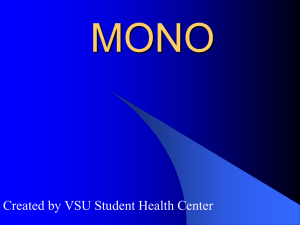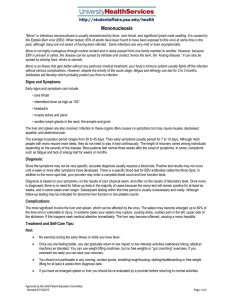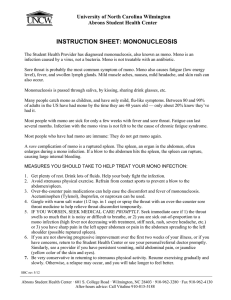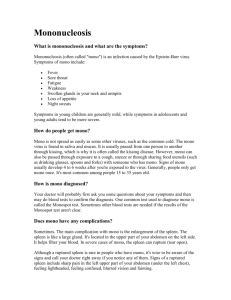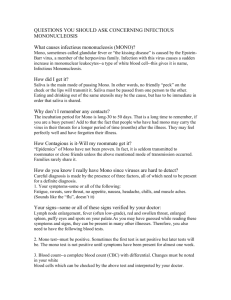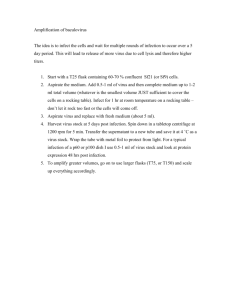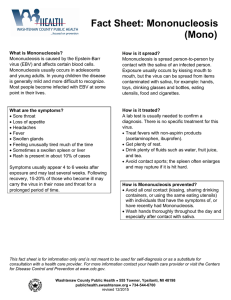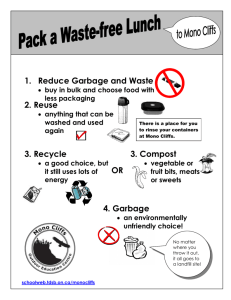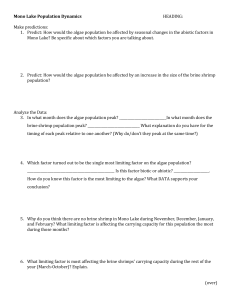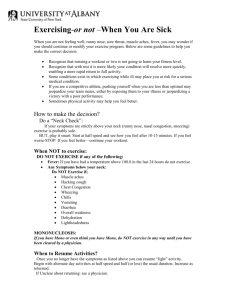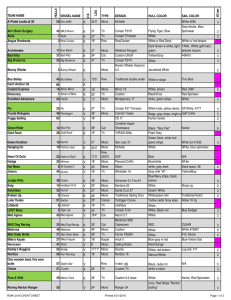Mononucleosis What Is It? Mononucleosis, also known as mono or
advertisement
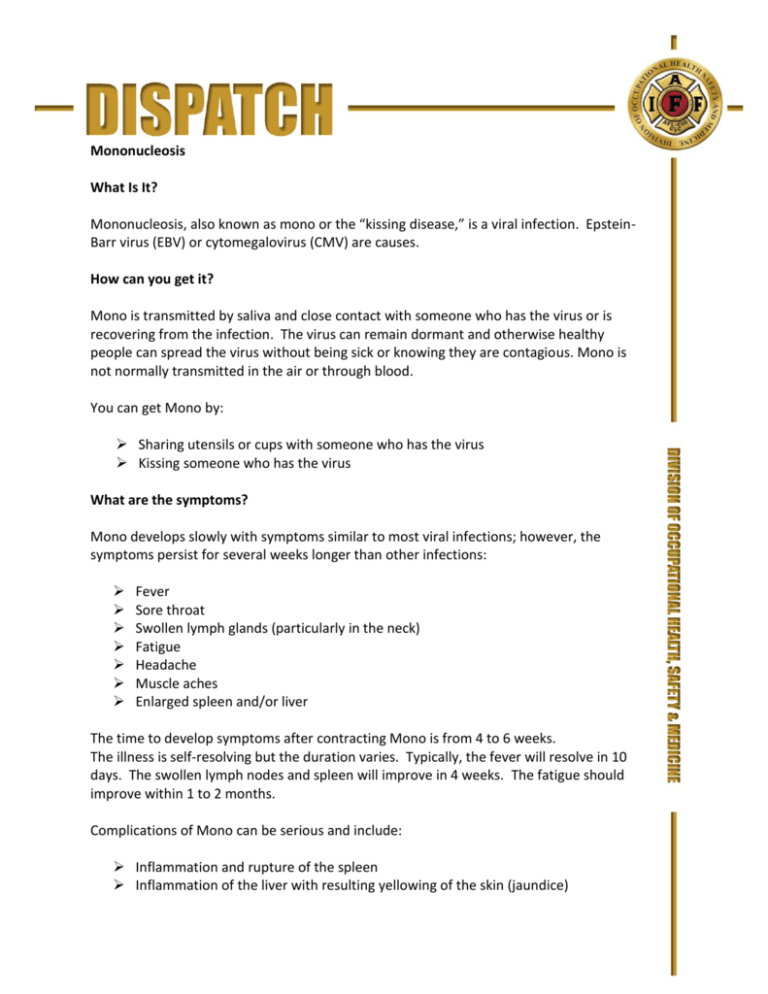
Mononucleosis What Is It? Mononucleosis, also known as mono or the “kissing disease,” is a viral infection. EpsteinBarr virus (EBV) or cytomegalovirus (CMV) are causes. How can you get it? Mono is transmitted by saliva and close contact with someone who has the virus or is recovering from the infection. The virus can remain dormant and otherwise healthy people can spread the virus without being sick or knowing they are contagious. Mono is not normally transmitted in the air or through blood. You can get Mono by: Sharing utensils or cups with someone who has the virus Kissing someone who has the virus What are the symptoms? Mono develops slowly with symptoms similar to most viral infections; however, the symptoms persist for several weeks longer than other infections: Fever Sore throat Swollen lymph glands (particularly in the neck) Fatigue Headache Muscle aches Enlarged spleen and/or liver The time to develop symptoms after contracting Mono is from 4 to 6 weeks. The illness is self-resolving but the duration varies. Typically, the fever will resolve in 10 days. The swollen lymph nodes and spleen will improve in 4 weeks. The fatigue should improve within 1 to 2 months. Complications of Mono can be serious and include: Inflammation and rupture of the spleen Inflammation of the liver with resulting yellowing of the skin (jaundice) Inflammation of the testicles (orchitis) Anemia Meningitis Death is rare but may occur in patients with weak immune systemsError! Bookmark not defined. How do you prevent it? No special precautions or isolation procedures are recommended Do not share utensils or cups without proper washing What should you do if you are exposed to the disease or get the disease? You should see a healthcare professional if you have a typical viral illness that persists for more than 10 days. If any symptoms progress to include abdominal pain, weakness, yellowing of the skin, difficulty breathing or stiff neck you should seek immediate medical attention. Your physician will diagnose Mono through a physical exam and may obtain blood work. A rapid diagnostic test called a “mono spot” is available for confirmation and antibody testing distinguishes a new infection from a prior infection.Error! Bookmark not defined. The treatment for Mono is to make the patient feel better since there is no specific medication to combat the virus. For the sore throat: For the fatigue: For the fever: For the muscle pain: gargle with warm salt water get plenty of rest use acetaminophen or ibuprofen use acetaminophen or ibuprofenError! Bookmark not defined. Patients are not to participate in contact sports if the spleen is enlarged as significant bleeding can occur if the spleen is hit and ruptures. For More Information and Frequently Asked Questions (FAQs), Check Out: Centers for Disease Control and Prevention (CDC): http://www.cdc.gov/ncidod/diseases/ebv.htm U.S. National Institutes of Health (NIH): http://www.ncbi.nlm.nih.gov/pubmedhealth/PMH0001617/ Mayo Clinic: http://www.ncbi.nlm.nih.gov/pubmedhealth/PMH0001617/ Family Doctor: http://familydoctor.org/familydoctor/en/diseasesconditions/mononucleosis.html Public Health Agency of Canada (PHAC): http://www.phac-aspc.gc.ca/lab-bio/res/psdsftss/epstein-barr-eng.php
